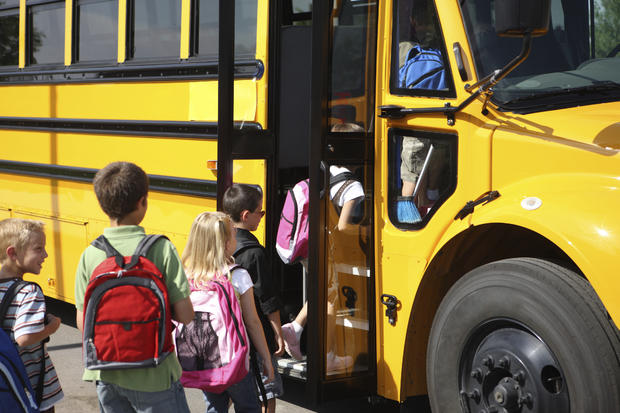How to spot a child's vision problem
The end of summer is a good time to look out for your child's eyesight.
About 40 percent of Americans are nearsighted, and more than a third of teens and pre-teens are affected by this common vision problem, according to the American Academy of Ophthalmology. Even so, many children don't get the eye exams they need as they head back to school.
Dr. Anne Sumers, an ophthalmologist and spokesperson for the American Academy of Ophthalmologists, told "CBS This Morning" why it's so important to have kids' eyes tested.
"It's a huge academic effect," said Sumers. "If you can't see the blackboard, you can't do well in school."
Sumers noted that visual learning -- lessons absorbed through reading or using a computer -- accounts for an estimated 80 percent of learning. And students face increasing demands on their visual abilities as they progress in school.
An infant's eyes should be checked at birth, but as children get older, vision screening requirements at school vary by state.
"Kindergartens might check your child, your pediatrician might do an annual exam for your child, but here's the shocking thing: Lots of children become nearsighted and don't realize they're nearsighted. They don't complain, " Sumers said. "So a mother will bring a child in when they failed a screening test at kindergarten or at a preschool, and ... the mother is shocked the child can't see the big 'E' on the eye chart."
What signs should parents look for? "Your child is squinting, your child is sitting very close to the television or the video, your child is resisting reading," Sumers said. "If you feel there's a problem, there definitely should be a screening."
Other signs of possible vision issues include coordination problems in sports, headaches, frequent eye rubbing or blinking, developmental delays, failure to maintain eye contact, and poor eye tracking skills, according to the American Optometric Association.
If you notice signs of a problem, or if your child has failed a vision screening, Sumers says it's time to see an ophthalmologist for a complete eye exam.
And if glasses are needed, Sumer says there's a positive way to spin it.
"With these glasses, you can see better for school, for sports, for video games. You're going to hit that baseball, you're going to play better soccer -- it's a very positive experience."
